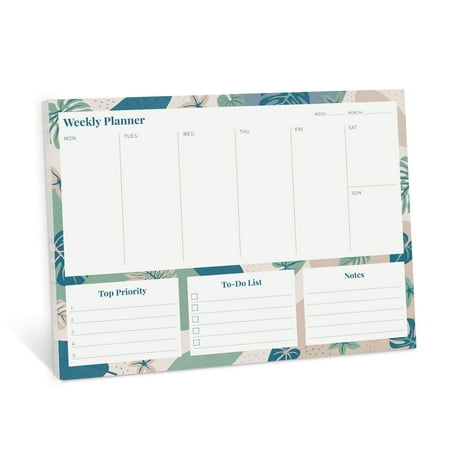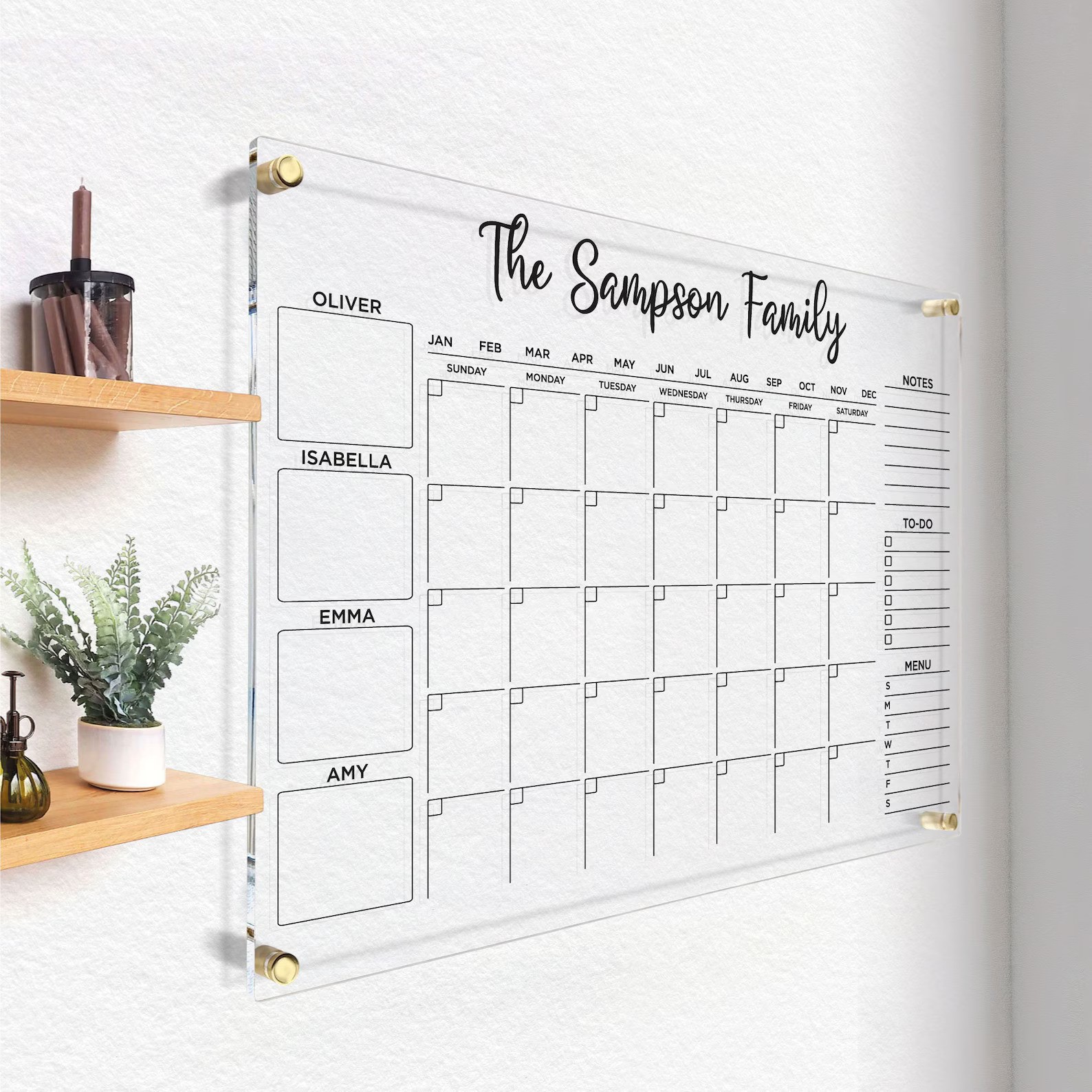
Every day, we start day with a regular core cluster of tasks and actions that set us up for a smooth and productive day ahead. Did you know structuring this time like a pro can not only prevent stress, but stop clutter building up in your home?
Here, productivity experts and psychologists reveal five powerful morning rituals that should be part of your 'opening shift', helping you organize your morning routine and bookend your day for success.
How to create a successful morning shift routine
Sabrina Cadini, holistic precision life and well-being coach says, like closing shift routines, the power of a morning shift routine for your home should not be underestimated.
She shares, 'I call morning routines a “launchpad” for our brain and body. The way we start our day influences everything, from stress levels and focus to decision-making and emotional resilience. When our morning is intentional, it signals to our brain that we are in control, reducing overwhelm and increasing confidence.
'The first 90 minutes after waking are very important because our brain transitions from a restorative state to an active one. During this time frame, our cortisol levels peak naturally, making it the best time to establish mental clarity, train our nervous system to start in a calm vs. reactive state, and create an organized and stress-free environment that reduces clutter.'
With that in mind, there are five things super-organized people do every day when their feet hit the floor that set them up for success.
1. Let light in

Increasing natural light in your home first thing in the morning is essential for boosting energy and creating an inviting atmosphere. When rooms remain dark and shadowy, it’s much harder to feel motivated to rise and start the day, let alone tackle any tasks or chores.
Caroline G. Brown, LMSW, PLLC, licensed clinical social worker agrees, saying, 'Open the window blinds or curtains to let natural light in upon waking up to help reset your circadian rhythm.
'Stay off your phone,' she adds, 'particularly social media or doom scrolling for at least 30 minutes. Beginning your day with short-form or stress-inducing content will contribute to decreased focus and heighten stress levels throughout the day.'
J Cangialosi, licensed clinical professional counselor, and therapist at Relief Mental Health adds, 'If the weather permits, open the windows as well to let some fresh air in. Fresh air and natural light (vitamin D) will boost your mood, improve your mood, and boost focus.'
Shock ventilation is also great for reducing the risk of damp and mold in your home without lowering the temperature too much in colder months.

While it might not be part of your morning routine, cleaning windows is a good light-boosting hack to make your home a little brighter. Microfiber cloths can buff away streaks without leaving lint behind.

This starter kit comes with one window vacuum, a spray bottle for the included Karcher window cleaner solution, and a washable microfiber pad to buff away streaks inside windows.

The Attitude cleaning products are made without harsh chemicals and are EWG-certified, meaning they meet the highest non-toxic standards.
2. Spend five minutes tidying

It is never too early to start with some tidying tips. In fact, Emily Guerra, productivity life coach, organizer, and founder of The Productivity Flow highly recommends some tiny tweaks to make your home more organized and set yourself up for a more productive day.
She suggests, 'Dedicate the first few minutes of your morning to tidying up one key area, for example, making your bed or clearing kitchen counters from the night before. This small, easy act creates an immediate sense of accomplishment and sets a tidy, organized tone for the day.'
Kamini Wood, human potential coach and owner of Live Joy Your Way does the same, 'I chose one area to organize before starting my day. For me, it's the kitchen and ensuring the kitchen sink is free of dishes.
'Just choosing one area that means something to you and ticking off some home organizing can allow for a sense of accomplishment as you start your day.'
3. Follow the one minute rule

Not all of us have the luxury of enjoying a nice, slow morning every day, but that doesn't mean we have to leave our homes in disarray.
To stop clutter before it starts in the morning and ensure we don't come home to a heap of mess we have to tidy up (and inevitably end up tidying when we feel overwhelmed), use the one-minute or one-touch tidying rule.
Dr. Leslie Sanders, a clinical psychologist at AToN Center shares, 'In my case, the strategy works because as soon as the task takes less than a minute to complete – for instance, putting my shoes somewhere or wiping a counter in the kitchen – doing so immediately is beneficial.
'Tackling things promptly makes sure clutter does not spiral out of control and helps maintain your set level of organization. By consistently handling these simple tasks, you create a space that feels less overwhelming over time.'

You likely will not have time to fully declutter or organize your home first thing in the morning. Having some baskets to hand means you can throw clutter to one side ready to sort later when you have more time to put things away properly.

After showering and getting dressed in the morning, the last thing you want is to wrestle with your laundry hamper. A pre-divided hamper makes it easier to sort clothes for laundry off the bat, so your chores are easier later and your bedroom stays tidier.

It takes less than a minute to brush up crumbs from your kitchen floor after making breakfast. Staying on top of this chore while your sink fills up or your coffee brews will make your home easier to manage in the long run.
4. Plan your to-do list

With some tidying out of the way and breakfast cleared away, now is the time to write up a to-do list, or create an achievable cleaning schedule to help structure your day and avoid forgetting any vital home maintenance tasks.
Gareth Hoyle, productivity expert, and managing director at Coveragely says, 'To-do lists might seem simple, but for some, they really do work to boost your mood and productivity. Not only do they provide structure and a plan for what to work on next, which can save you time and reduce decision fatigue between tasks, not to mention ticking something off a list provides that instant feel-good factor.
'The secret to making a to-do list less overwhelming is to keep it short and realistic,' he adds. 'Making this a habit will ensure good focus going forward and will reduce stress as you'll always be on top of any work that needs to be done.'
Navi Hughes MSN, APRN, PMHNP-BC, psychotherapist, emotional intelligence coach, and founder of Empower Mental Health shares, 'I organize my day based on the Eisenhower matrix – a time management tool that helps to organize tasks into four quadrants labeled urgent, non-urgent, important, and non-important.

Having an undated planner visible on your desk is a great way to keep on top of all your important tasks without having to dig through a journal or digital calendar. It also offers an easy space to make notes to reduce your mental load.

Available in five sizes, these customizable family wall planners offer space for monthly event planning, notes, to-do lists, food plans, and individual family member notes to keep everyone on track.

A standard journal is more than enough to keep track of all your tasks. These Anthropologie notebooks are available for every letter of the alphabet for a little personalized touch.
- Urgent and important (do first): These are tasks that need to be done without delay. For example, responding to an urgent work email or fixing a broken pipe. Do these tasks first.
- Important, not urgent (schedule): These tasks still need to be done in the next day or two, but they don't need to take up the first portion of your day – schedule a time to complete them. Examples might include planning a project, doing laundry, or cleaning the bathroom or kitchen.
- Urgent, not important (delegate): These tasks need to be done soon but aren’t particularly important. If possible, delegate them to someone else, encouraging family to clean or declutter with you. Examples could be running a quick errand or decluttering an entryway closet that has been annoying you recently.
- Not urgent, not important (eliminate): These tasks are neither time-sensitive nor crucial. Consider removing them from your daily to-do list or doing them only if you have extra time.'
5. Take a breather

Sabrina Cadini concludes, 'Before diving into work or daily tasks, take 60 seconds to pause and set an intention for how you want to feel today (calm, focused, energized). This quick mental shift reduces stress and increases productivity.'
It can be helpful to create white space throughout your day to help reduce chore stress, too.
Meet the experts
FAQs
How long should a morning routine be?
There is no one-size fits all answer for how long a morning shift routine should be, as it varies from person to person. Experts suggest you should spend at least 30-90 minutes to yourself each morning, however, to help set you and your environment up for a more relaxed and organized day.
A morning shift routine is a great way to stay on top of smaller chores before they get out of hand. For a more efficient morning, consider using bedroom closing shifts or a professional kitchen closing shift routine the night before so you are waking up to a bank stress-free slate each day.







